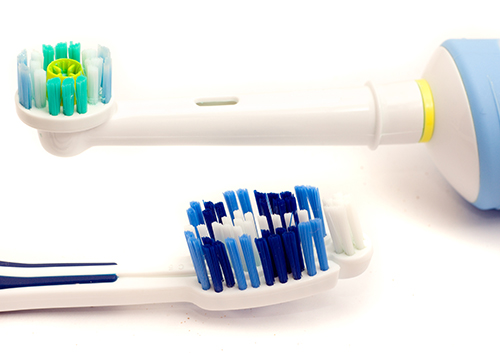March 3rd, 2017

Does the thought of getting a dental implant put knots in your stomach? There are many people who don't enjoy getting dental work done and there is a myriad of reasons why. For whatever reason you aren't at your best when you arrive at our Dallas,TX office, we'd like to offer some tips that can help put you at ease for your implant procedure.
Sedation
For lengthy visits like an implant procedure, sedation dentistry may be an option for you. With sedation dentistry you are given sedation medication, usually orally with a pill or intravenously, which allows you to drift through the entire procedure without any memory of it afterward. If you decide on oral sedation, typically you take the medication about an hour before your procedure starts.
To avoid any complications, a complete medical background check is made along with a record of any allergies before any sedation is administered. Your vital signs are also monitored throughout the entire procedure.
If you decide sedation is not the right option for you, there are other techniques that you can benefit from. Some of these include:
- Communication: This may seem obvious, but communicating any fears or anxiety you may have about your procedure with us is extremely helpful. Not only does this build a relationship of trust but it allows us to try and alleviate your anxiety as much as we can.
- Herbal teas: Drink some herbal tea (like chamomile or lemon balm) before you visit the office. Many patients find this is a great help in relieving anxiety and putting them sufficiently at ease.
- Relaxing music: Bring a pair of headphones along and listen to your favorite music during treatment (preferably something low-key). Or why not catch up on your reading when you visit us — some patients like to listen to audiobooks too!
- Meditate or practice deep breathing: Meditation and deep breathing are good to practice in general, since they relax both the body and mind. They can be effective in the case of anxiety, too!
February 24th, 2017

You live in the golden age of toothbrushes. Until a few decades people used twigs or brushes made from animal hair to clean their teeth: not very soft and none too effective.
Now, you have a choice of manual brushes with soft, medium, or hard bristles. Or you might choose to go with an electric toothbrush instead.
Have you ever wondered whether manual or electric brushes provide better cleaning? Actually, they both do the job. The key is to brush and floss every day, regardless of the kind of brush you prefer.
At our Dallas,TX office, we like to say the best brush is the one you'll use. So if you prefer manual, go for it. If you prefer electric, turn it on.
Both types have their advantages but both types will get the job done as far as removing plaque.
Electric Toothbrushes
- Provide power rotation that helps loosen plaque
- Are great for people with limited dexterity due to arthritis or other problems
- Are popular with kids who think the electric brushes are more fun to use
- Can come with variable speeds to help reduce pressure on sensitive teeth and gums
Manual Toothbrushes
- Can help brushers feel they have more control over the brushing process
- Allow brushers to respond to twinges and reduce the pressure applied to sensitive teeth and gums
- Are more convenient for packing when traveling
- Manual brushes are cheaper and easier to replace than the electric versions.
In many ways, the golden age is just beginning. There are already phone apps available to remind you to brush and floss. New apps can play two minutes worth of music while you brush, help you compare the brightness of your smile or help explain dental procedures. Maybe someday we’ll even have programs that examine your teeth after brushing and identify spots you might have missed.
February 17th, 2017

Brushing your teeth properly removes the food particles and bacteria that can lead to tooth decay and gum disease. However, you do not want to scrub your teeth or gums heavily. A heavy hand can lead to tooth and gum erosion, as Drs. Sheena Allen, Murat Ayik, Mark Margolin, Jacquelyn Freeman and our staff see all too often.
You should also use a soft bristle toothbrush to avoid damaging the surface of your teeth. Make sure the head of the brush fits in your mouth, because if it is too large you will not be able to reach all tooth surfaces. Follow these steps to ensure you are brushing properly.
- Use a small amount of toothpaste on your brush. The recommendation is a pea-sized amount or thin strip on the bristles.
- Hold your toothbrush at a 45-degree angle to the surface of your teeth, angling towards your gums. Use a circular motion on all exterior tooth surfaces, and avoid back-and-forth “scrub” brushing.
- Once you have cleaned the outer surfaces, hold the brush vertically and clean the inner teeth surfaces — the side of your teeth that face your tongue. Do not forget the inner surfaces of your front teeth.
- Finally, finish by cleaning all the chewing surfaces of your teeth. You need to maintain a gentle touch, but make sure you get into the full depth of your molars. The entire process should take about two minutes.
Drs. Sheena Allen, Murat Ayik, Mark Margolin, Jacquelyn Freeman and our staff recommend changing your toothbrush every three to four months for best results. Do not forget to clean your tongue, which helps remove excess bacteria from your mouth. Special brushes are available just for cleaning your tongue, and they are easy to use.
Proper care of your teeth also requires flossing on a regular basis. Flossing can be performed before or after you brush. Following up with a quality mouthwash will provide you with even more protection. Do not be afraid to ask the Dallas Dental Arts team for tips on proper brushing and flossing.
February 10th, 2017

According to the American Association of Pediatric Density, roughly one in five children suffers from canker sores. Canker sores are small sores that appear inside the cheeks, on the lips, on the surface of the gums, and under the tongue.
Even though, canker sores are not contagious, they do tend to run in families. There are several reasons your child may be suffering from canker sores including:
- Children who have Vitamin B12, iron, and folic acid deficiencies tend to get canker sores more often than children who have normal levels of these vitamins and minerals.
- Children who suffer from food allergies are also at a higher risk for developing canker sores. It’s difficult to determine what your child may be allergic to. If you feel strongly that the canker sores are related to an allergy, then a visit to an allergist is highly recommended.
- Biting their lip or cheek can also result in a canker sore.
- Any injury to mouth, where the skin breaks can cause a canker sore.
- Brushing their teeth too hard can also be a problem.
- Your child may be sensitive to an ingredient in their toothpaste. Try switching toothpastes and see if it makes a difference.
- Emotional disturbances and stress are also factors to consider.
If your child has frequent canker sores a visit to our Dallas,TX office will be beneficial. Canker sores are painful and usually last about 14 days. Drs. Sheena Allen, Murat Ayik, Mark Margolin, Jacquelyn Freeman may recommend one or a few of the following treatment options:
- Avoid food that is acidic, salty, and spicy.
- A toothbrush with soft bristles may be helpful.
- Avoid mouthwash and toothpaste that contain SLS.
- Do not feed your child foods that they may be allergic to.
Canker Sore Remedies
- Eating yogurt that contains Acidophilus will relieve the pain and help the canker sore heal faster.
- Put one teaspoon of baking soda in an eight-ounce glass of lukewarm water. Have your child gargle and swish it around his or her mouth several times a day. Not only does this remedy relieve the pain, the canker sore could be gone in as little as 24 hours.
- Place a wet tea bag on the sore and hold it there for a few minutes several times a day. This remedy will help with the pain and quickly heal the sore.
- Camphor, Benzocaine, Lidocaine, and Orajel are over-the-counter medications that can help.
If you have questions about your child’s canker sore, contact Drs. Sheena Allen, Murat Ayik, Mark Margolin, Jacquelyn Freeman to schedule an appointment.



